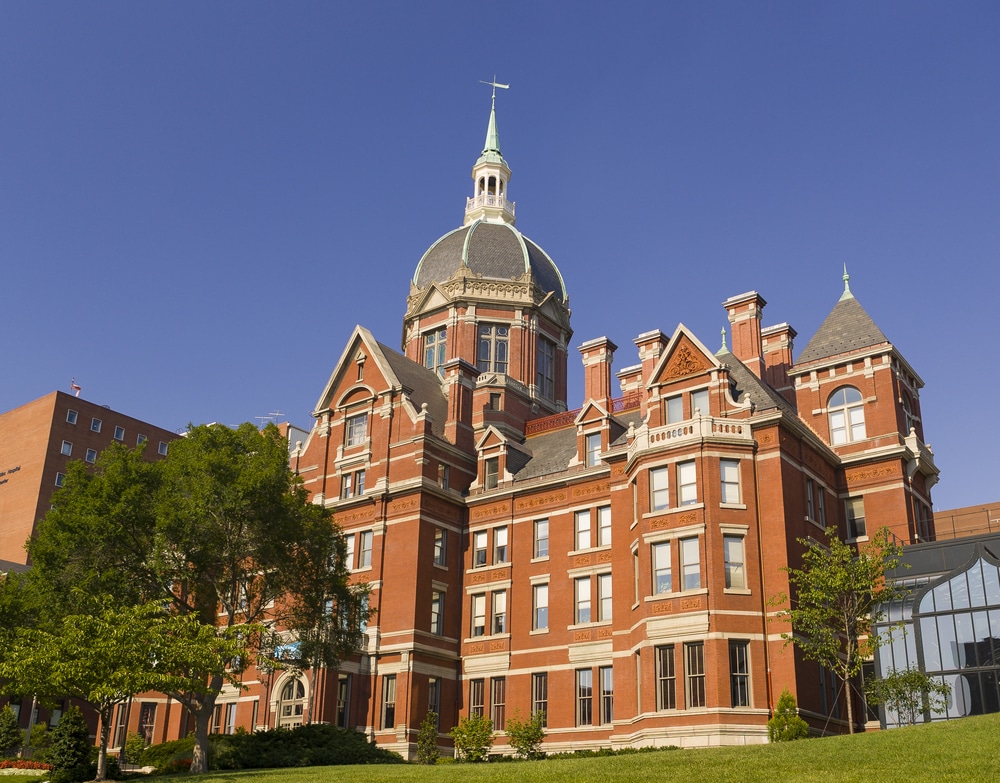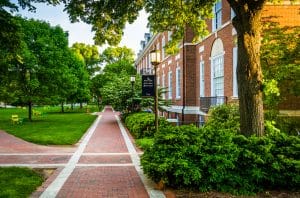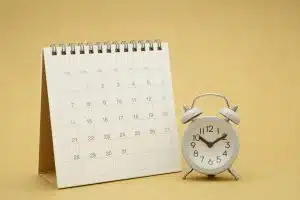Johns Hopkins Academic Calendar
Have you ever wondered what goes on behind the scenes to keep a university running smoothly? One key component of university life is the academic calendar. At Johns Hopkins University, the academic calendar serves as a guide for students, faculty, and staff, providing important dates and milestones throughout the year. In this article, we will delve into the details of the academic calendar at Johns Hopkins University and explore its various components and significance.
Understanding the Academic Calendar at Johns Hopkins
At Johns Hopkins University, the academic year is divided into three main semesters: fall, spring, and summer. Each semester has its unique characteristics and plays an important role in the overall educational experience of students.
The Importance of the Academic Calendar at Johns Hopkins
The academic calendar is the backbone of the university’s operations. It serves as a roadmap for students, helping them plan their coursework, exams, and other academic activities. Faculty and staff also rely on the calendar to schedule classes, allocate resources, and coordinate important events. Moreover, the academic calendar serves as a point of reference for parents, alumni, and other stakeholders, allowing them to stay informed about the university’s activities.
Key Dates in the Academic Year at Johns Hopkins University
Several key dates punctuate the academic year at Johns Hopkins University. These dates include the start and end of each semester, as well as important holidays and breaks. Let’s take a closer look at some of these significant milestones.
The fall semester at Johns Hopkins University typically begins in late August or early September. As the leaves change color and the air becomes crisp, students eagerly return to campus, ready to embark on a new academic journey. The fall semester is known for its vibrant energy, with students immersing themselves in a wide range of classes, extracurricular activities, and research opportunities.
As the fall semester progresses, the campus becomes a hub of intellectual curiosity and collaboration. Students engage in lively discussions, attend thought-provoking lectures, and work closely with faculty members on groundbreaking research projects. The fall semester also brings a sense of anticipation, as students eagerly await the arrival of Thanksgiving break, a time to relax, recharge, and spend quality time with loved ones.
After the Thanksgiving break, students return to campus for the final stretch of the fall semester. As the days grow shorter and colder, the campus is filled with a sense of determination and focus. Students diligently prepare for their final exams, putting their knowledge and skills to the test. The fall semester concludes with a sense of accomplishment and celebration, as students reflect on their academic achievements and look forward to a well-deserved winter break.
The spring semester at Johns Hopkins University begins in late January or early February, marking the start of a new year filled with endless possibilities. As the winter snow melts away, students return to campus with renewed energy and enthusiasm. The spring semester is a time of growth and exploration, as students delve deeper into their chosen fields of study and take on new challenges.
During the spring semester, the campus comes alive with various events and activities. Students participate in conferences, symposiums, and workshops, showcasing their research and engaging in intellectual discourse. The warmer weather also invites students to spend time outdoors, enjoying the beauty of the campus and forming lasting friendships.
As the spring semester progresses, students eagerly anticipate spring break, a much-needed respite from their academic pursuits. Whether they choose to travel, volunteer, or simply relax, spring break offers students a chance to recharge and gain new perspectives. After the break, students return to campus with a renewed sense of purpose, ready to tackle the remaining weeks of the semester.
The summer semester at Johns Hopkins University offers students a unique opportunity to further their academic and professional goals. With a more relaxed pace, the summer semester allows students to delve deeper into specific subjects, engage in internships, and pursue research projects. The summer semester also attracts students from other universities, as they take advantage of the university’s diverse course offerings and world-class faculty.
While the summer semester may be shorter in duration, it is no less impactful. Students immerse themselves in intensive coursework, taking advantage of smaller class sizes and personalized attention from professors. The summer semester also provides a chance for students to explore the vibrant city of Baltimore, with its rich history, cultural attractions, and vibrant arts scene.
As the summer semester draws to a close, students reflect on their academic journey and the invaluable experiences they have gained. Whether it be through groundbreaking research, meaningful internships, or engaging coursework, the summer semester at Johns Hopkins University leaves a lasting impact on students’ personal and professional development.
Semester Breakdown at Johns Hopkins University
Fall Semester Overview
The fall semester at Johns Hopkins University typically begins in late August or early September and extends through mid-December. During this time, students immerse themselves in a wide range of coursework, participate in extracurricular activities, and make lasting connections with their peers and professors. The fall semester is also known for its festive events, such as homecoming and fall break, which offer students a chance to relax and recharge.
As the leaves change color and the air becomes crisp, the fall semester at Johns Hopkins University comes alive with a vibrant energy. Students eagerly anticipate the start of the academic year, as they embark on a journey of intellectual growth and personal development. The campus buzzes with activity as students navigate their way through a diverse range of classes, from introductory courses to advanced seminars.
Outside the classroom, students engage in a multitude of extracurricular activities that cater to their varied interests. Whether it’s joining a student organization, participating in community service projects, or pursuing athletic endeavors, there is something for everyone at Johns Hopkins University. These activities not only provide a break from academic rigor but also foster a sense of camaraderie among students, creating a supportive and inclusive community.
Homecoming, a beloved tradition at Johns Hopkins University, brings together current students, alumni, and faculty to celebrate the university’s rich history and achievements. It is a time of spirited competition, as students cheer on their Blue Jays in various sports events. The campus is adorned with school colors, and the air is filled with excitement and school pride.
Additionally, fall break offers students a well-deserved respite from their studies. It is a time to recharge and explore new horizons. Some students take this opportunity to travel and immerse themselves in different cultures, while others use the break to catch up on rest and spend quality time with family and friends.
Spring Semester Overview
The spring semester at Johns Hopkins University is a time of renewed energy and excitement. Spanning from January to May, this semester is marked by the anticipation of warmer weather and the approaching end of the academic year. Spring break, an eagerly awaited week-long break in March, provides students with an opportunity to unwind and engage in recreational pursuits. Moreover, the spring semester showcases a variety of academic conferences, where students have the chance to present their research and network with professionals in their respective fields.
As winter gives way to spring, the campus at Johns Hopkins University blossoms with new life. Students shed their winter coats and embrace the mild weather, taking advantage of the beautiful outdoor spaces on campus. The spring semester brings a sense of rejuvenation, as students dive into their coursework with renewed vigor.
Spring break is a highly anticipated event, offering students a chance to escape the demands of academia and indulge in leisure activities. Some students choose to travel to exotic destinations, exploring new cultures and broadening their horizons. Others opt for a more relaxed break, spending time with loved ones, or engaging in hobbies and passions that often take a backseat during the semester.
Moreover, the spring semester at Johns Hopkins University is a time for students to showcase their academic achievements. Various academic conferences and symposiums provide a platform for students to present their research and engage in intellectual discussions with experts in their fields. These events not only enhance students’ knowledge but also allow them to network with professionals, opening doors to future opportunities.
Summer Term Details
While the fall and spring semesters offer a traditional college experience, the summer term at Johns Hopkins University provides students with unique opportunities to delve deeper into their studies or explore new fields of interest. Students can choose from a wide array of summer courses, internships, and research opportunities. The summer term is an exciting time when students can focus on individual projects, gain valuable hands-on experience, and make progress toward their academic and career goals.
As the temperature rises and the days grow longer, the campus at Johns Hopkins University transforms into a hub of intellectual exploration during the summer term. Students have the freedom to tailor their academic pursuits, selecting courses that align with their interests and goals. The smaller class sizes and intimate learning environments foster close relationships between students and professors, allowing for personalized guidance and mentorship.
Furthermore, the summer term presents students with a multitude of experiential learning opportunities. Whether it’s securing an internship at a prestigious organization, conducting groundbreaking research alongside renowned faculty members, or participating in service-learning projects, students can immerse themselves in real-world experiences that complement their academic studies.
Additionally, the summer term allows students to take advantage of the university’s resources and facilities without the usual hustle and bustle of the academic year. The libraries, laboratories, and study spaces are readily available, providing students with an optimal environment to delve into their studies and pursue their intellectual passions.
Overall, the summer term at Johns Hopkins University offers a unique and enriching experience for students. It is a time of exploration, growth, and self-discovery, as students take advantage of the flexibility and opportunities that the summer term provides.
Johns Hopkins Academic Calendar: Special Academic Events and Traditions
Commencement Ceremony
One of the most cherished events on the academic calendar at Johns Hopkins is the commencement ceremony. Held in May, this grand celebration marks the culmination of years of hard work and dedication for graduating students. It is a time when families, friends, faculty, and staff come together to honor the achievements of the graduating class. The commencement ceremony is an emotional and inspiring occasion, filled with speeches, performances, and the conferral of diplomas.
Homecoming Weekend
Every fall, Johns Hopkins University welcomes back alumni for a weekend of festivities known as Homecoming. It is a time for alumni to reconnect with their alma mater, reminisce about their college experiences, and celebrate their enduring ties to the university. Homecoming weekend is filled with various events, including alumni reunions, athletic competitions, and campus tours, creating a sense of nostalgia and camaraderie among past and present members of the university community.
Spring Fair
An iconic event that has become a beloved tradition at Johns Hopkins University is the Spring Fair. Held annually in April, the Spring Fair is a vibrant celebration of food, music, art, and culture. It brings together students, faculty, staff, and the local community for a weekend of outdoor activities and entertainment. From live performances to food trucks, the Spring Fair offers something for everyone and is a testament to the university’s spirit of creativity and community engagement.
Johns Hopkins Academic Calendar: Navigating Exam Schedules
Midterm Examination Period
Throughout the academic year, students face the challenge of midterm exams. These exams typically occur halfway through the semester and provide an opportunity for students to demonstrate their understanding of the course materials. The exact timing and duration of midterm exams may vary depending on the individual course and professor. Students are advised to consult their syllabi and academic calendars to ensure they are adequately prepared for these critical assessments.
Final Examination Period
The end of each semester at Johns Hopkins University is marked by the final examination period. This intensive period, usually spanning a few weeks, is when students are assessed on their overall knowledge and understanding of the course material. Final exams can take various forms, including written exams, oral presentations, and project submissions. Proper time management and preparation are essential during this period to ensure success and minimize stress.
Johns Hopkins Academic Calendar: Registration and Enrollment Deadlines
Course Registration Timeline
At the heart of the academic calendar is the course registration timeline. This timeline outlines the key dates and deadlines associated with course selection and enrollment. Students must carefully plan their course schedules, taking into account prerequisites, credit requirements, and other factors. The registration process can be highly competitive, especially for popular courses, so it is crucial to be aware of the registration timeline and act promptly to secure desired courses.
Add/Drop Period
Even after the course registration period, students have the opportunity to make adjustments to their schedules during the add/drop period. This period usually occurs at the beginning of each semester and allows students to make changes to their course selections without penalty. It is an excellent opportunity to explore different subjects, make necessary adjustments, or find the perfect balance between coursework and extracurricular activities.
Withdrawal Deadlines
In some cases, students may find it necessary to withdraw from a course due to unforeseen circumstances or academic challenges. The academic calendar provides specific withdrawal deadlines, beyond which students may face academic and financial consequences. It is important for students to be familiar with these deadlines and to seek academic advising or support if they are considering withdrawing from a course.
In conclusion, the academic calendar of Johns Hopkins University serves as a navigational tool for students, faculty, and staff. From key dates and milestones to special events and traditions, the calendar plays a crucial role in the smooth functioning of the university. By understanding and utilizing the academic calendar, students can make informed decisions, plan their academic journey, and make the most of their time at Johns Hopkins University.










































